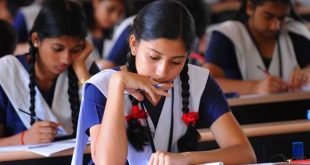Question: A democratic government has to be accountable, responsive and legitimate government. Discuss.
Answer: Democracy is based on the idea of deliberation and negotiation. They ensure that the decisions taken are acceptable to all the people.
Democracies are accountable to its citizens. That is, all decision making has to be transparent. This factor is missing from a non-democratic government. In a democracy, citizens also take part in decision making.
Democracies are responsible for the decisions they make. If a wrong decision is made, it is the duty of the government to rectify it. In a non-democratic government, decisions are taken by a single person and the Question of rectification does not arise, even if it is a wrong decision.
Deliberation and negotiation cause delay. So in a democracy there is a possibility of delay when some major decisions have to be taken. This delay may be costly. The cost of time that democracy pays is perhaps worth it as the decision will be acceptable to all.
Democracies follow a constitution, so they are legitimate. The laws of the country are applicable to everyone, even to the government members. Free and fair elections are held in democracies and the people have the power to eliminate parties they are not happy with, in the next election. In a non-democratic government this is not possible as elections are not held.
Democracies have to be responsive. The government should function in a transparent manner and the common man should be able to approach the government to address his grievances.
Question: Compare democracies and non-democratic countries on the basis of economic growth.
Answer: On an average dictatorial regimes have a slightly higher economic growth rate. Poor democracies and non-democratic countries have the same economic growth rate.
When we consider the economic growth, only in democracies, we find a terrible imbalance among the citizens.
- South Africa and Brazil – the difference between the rich and the poor is enormous
- Denmark and Hungary – the economic standard is more balanced
Question: Write a brief note on the status of women in democratic and non-democratic countries.
Answer: In democratic and non-democratic countries we find that men dominated the society. Women had to struggle for equal treatment in society. In India we find that female feticide is still prevalent in villages.
In modern democracies the laws have ensured that women are treated equally in society. In a non-democratic set up, this is not possible as the principle of individual freedom and dignity is not a legal or moral force.
Question: What should the government do to lift the poor from the clutches of poverty?
Answer: It is the duty of a democratic country to lift the poor from the clutches of poverty, for all citizens have equal rights in a democracy. Programmes, for the upliftment of the poor are necessary. Free education, free health care is very necessary in poor democracies. India is implementing many schemes for the upliftment of the poor. The gap between the poor and the rich is slowly becoming narrower in India.
Question: How does democracy produce an accountable, responsive and legitimate government?
Answer: Democracy produces an accountable government because it provides regular, free and fair elections regularly. Open discussions are held on all major issues and legislation.
Democracy gives its citizens the right to information about the government and its functioning.
Democracy provides a responsive government as it is formed by elected representatives of the people. These representatives discuss the problems of the society and make policies and programmes accordingly. The representatives also ensure that the programmes are implemented.
Democracies follow a constitution, so they are legitimate. The laws of the country are applicable to everyone, even to the government members. Free and fair elections are held in democracies and the people have the power to eliminate parties they are not happy with, in the next election.
 Class Notes NCERT Solutions for CBSE Students
Class Notes NCERT Solutions for CBSE Students





